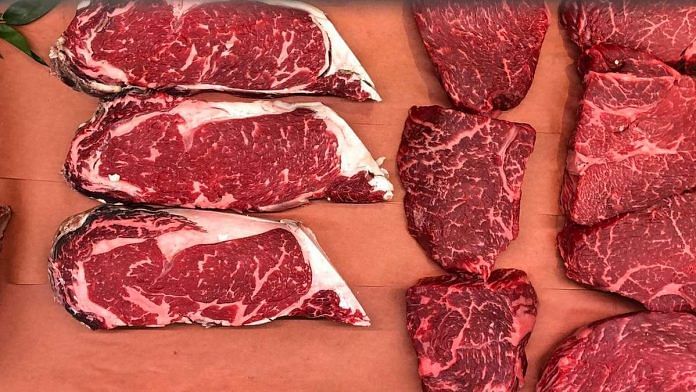Red meat flip-flop
Red meat is not as unhealthy as commonly believed, a series of new studies states in a controversial take. While red meat is believed to be associated with heart disease, cholesterol risks, diabetes and cancer, the studies suggest this might not be the case. While other experts have refuted the findings, the studies have added two caveats — it did not consider the issues of environmental impact and animal welfare. The meat industry is one of the worst offenders on both counts. Slate has more on this.
Irrigation is leaving many rivers dry
Around the world, intensive irrigation is depleting groundwater, in turn affecting water bodies like rivers and lakes, a new study has warned. The study said this is happening in places such as California’s Central Valley, northern India, and the North China Plain. More on NPR.
Aspirin might save lungs from air pollution
Nonsteroidal anti-inflammatory drugs (NSAIDs) like aspirin may lessen the adverse effects of air pollution exposure on lung function, a study published last month suggests. Scientists found that NSAIDs could potentially reduce lung troubles by almost half. The research looked at data from a long-running study of 2,000 veterans in the US that has been going on since the 1960s. Gizmodo has more.
Giant cannibalistic galaxy on its way towards Milky Way
Astronomers have traced the recent past of the Andromeda galaxy that is heading towards our Milky Way on a collision course in about 4.5 billion years. The galaxy has eaten several smaller galaxies, likely within the last few billion years. Astronomers identified this through “leftovers” found in the form of large streams of stars. The observations were made through five different telescopes. Read more on Space.com.



